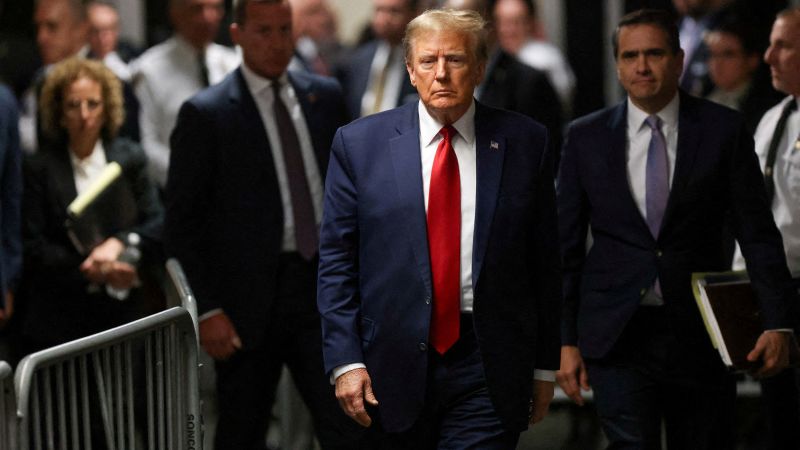Former President Donald Trump is set to make history as he becomes the first former president to go on trial for criminal charges. The trial, which centers around a potential sex scandal coverup in the days leading up to the 2016 election, alleges that Trump falsified business records to hide hush money payments made to influence the election outcome. Trump has pleaded not guilty to the charges.
The trial will be a major test for Manhattan District Attorney Alvin Bragg, who is a Democrat. Trump is facing 34 felony counts of falsifying business records in the first degree and could face up to 1 1/3 to 4 years in state prison for each count if convicted. Witnesses from Trump’s inner circle, including his former attorney Michael Cohen and former CEO of National Enquirer David Pecker, will testify against him.
The trial will also take the jury inside the Oval Office, where prosecutors allege that Trump signed off on the cover-up involving falsified business records to reimburse Cohen for hush money payments. Despite the salacious nature of the allegations, much of the testimony is expected to focus on back-office recordkeeping. Prosecutors must prove beyond a reasonable doubt that Trump falsified business records with the intent to commit or conceal another crime.
Trump’s defense team plans to attack the credibility of witnesses like Daniels and Cohen, painting them as liars motivated by grudges and money. They may argue that the hush money payments were legal and were made to prevent embarrassment to Trump’s family, not to influence the election. Trump himself may testify in his defense, a move that could have higher stakes in a criminal case.
The trial dates back to the final days of the 2016 election when Stormy Daniels threatened to go public with allegations of an affair with Trump. Trump’s allies allegedly scrambled to pay hush money to Daniels to prevent her from speaking out, as part of a larger pattern of “catch and kill” deals orchestrated by Trump’s campaign team. The payment was made just days before Trump won the election.
Prosecutors allege that Trump agreed to reimburse Cohen for the hush money payment, arranging the details with his CFO at the Trump Organization. The payments were allegedly disguised as legal expenses in business records. The trial is expected to delve into the details of these financial transactions and could shed light on the inner workings of Trump’s business operations.


